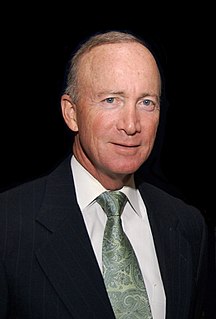A Quote by Jason Calacanis
The down market favours the small two-, three-, four-person company, not the huge company with 100 people losing half a million dollars a month.
Related Quotes
When you're in a start-up, the first ten people will determine whether the company succeeds or not. Each is 10 percent of the company. So why wouldn't you take as much time as necessary to find all the A players? If three were not so great, why would you want a company where 30 percent of your people are not so great? A small company depends on great people much more than a big company does.
One thing about open source is that even the failures contribute to the next thing that comes up. Unlike a company that could spend a million dollars in two years and fail and there's nothing really to show for it, if you spend a million dollars on open source, you probably have something amazing that other people can build on.
To the economically illiterate, if some company makes a million dollars in profit, this means that their products cost a million dollars more than they would have without profits. It never occurs to such people that these products might cost several million dollars more without the incentives to be efficient created by the prospect of profits.
Presently, my understanding of the fundamental principles of the theory of high-intensity training is thorough and complete - not two plus two equals three-and-a-half, but two plus two equals four! Heretofore, I would only occasionally have clients gain 10 to 20 pounds in a month or 30 to 40 pounds in three to four months. Now such is no longer the exception , but the rule!
A company can spend hundreds of thousands of dollars on firewalls, intrusion detection systems and encryption and other security technologies, but if an attacker can call one trusted person within the company, and that person complies, and if the attacker gets in, then all that money spent on technology is essentially wasted.
I'm thinking, That's Barack Obama. He doesn't go to work. He doesn't go down to Congress and make a deal. What the hell's he doing sitting in the White House? If I were in that job, I'd get down there and make a deal. Sure, Congress are lazy bastards, but so what? You're the top guy. You're the president of the company. It's your responsibility to make sure everybody does well. It's the same with every company in this country, whether it's a two-man company or a two-hundred-man company... . And that's the pussy generation - nobody wants to work.


































